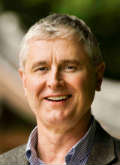China’s Directed Public Sphere: Origins and Rejuvenation
-----
Introduction
Understanding the public role of intellectuals across China’s long 20th century requires
one to clarify what sort of public sphere China’s intellectuals operated in at different
times. In a recent survey, I identified three: print capitalism, the propaganda state,
and the directed public sphere. This paper seeks to explore the concept of the public
sphere in China and in particular the directed public sphere as it is rejuvenated
under Xi Jinping today. This exercise should help us to clarify both the opportunities
and constraints that a given public sphere puts on intellectual behaviour in the public
arena as well as the contributions of intellectuals and other agents in the creation,
maintenance and transformation of that public sphere. This also gives us a more reliable
understanding of what intellectuals and other public agents have been trying to do
in different public spheres at different moments across the century. It also helps
us track the persistence and change of key ideas, key words or political concepts.
Finally, these historically specific Chinese public spheres offer the opportunity
to revisit and perhaps revise current general models of the public sphere derived
from Jürgen Habermas.
RSVP by email here >
About the Speaker
 Timothy Cheek is Professor and Louis Cha Chair in Chinese Research at the Institute of Asian Research,
University of British Columbia. His research, teaching and translating focus on the
recent history of China, especially the role of Chinese intellectuals in the 20th
century and the history of the Chinese Communist Party. His historical scholarship
comes out of the “China centred” turn in the 1980s with a strong focus on inductive
research on Chinese contexts, rather than testing comparable theories of modernization
or post modernism. However, he has found Thomas Bender’s approach to “cultures of
intellectual life,” or communities of discourse, to be very helpful. In recent years
Cheek shifted from “working on China” to “working with China” and has been working
with some Chinese colleagues to explore avenues of communication across our social-cultural
divides in order to address the problems of global change that confront us all, particularly
problems of environment. Prof. Cheek has written and edited a number of books, including
his most recent, The Intellectual in Modern Chinese History (NY: Cambridge University Press, 2015) and Mao's Road to Power: Revoluntionary Writings, 1912-1949 Vol. VIII: 1942-August 1945, co-editor with Stuart R. Schram (London: Routledge,
Jul. 2015).
Timothy Cheek is Professor and Louis Cha Chair in Chinese Research at the Institute of Asian Research,
University of British Columbia. His research, teaching and translating focus on the
recent history of China, especially the role of Chinese intellectuals in the 20th
century and the history of the Chinese Communist Party. His historical scholarship
comes out of the “China centred” turn in the 1980s with a strong focus on inductive
research on Chinese contexts, rather than testing comparable theories of modernization
or post modernism. However, he has found Thomas Bender’s approach to “cultures of
intellectual life,” or communities of discourse, to be very helpful. In recent years
Cheek shifted from “working on China” to “working with China” and has been working
with some Chinese colleagues to explore avenues of communication across our social-cultural
divides in order to address the problems of global change that confront us all, particularly
problems of environment. Prof. Cheek has written and edited a number of books, including
his most recent, The Intellectual in Modern Chinese History (NY: Cambridge University Press, 2015) and Mao's Road to Power: Revoluntionary Writings, 1912-1949 Vol. VIII: 1942-August 1945, co-editor with Stuart R. Schram (London: Routledge,
Jul. 2015).
-----


